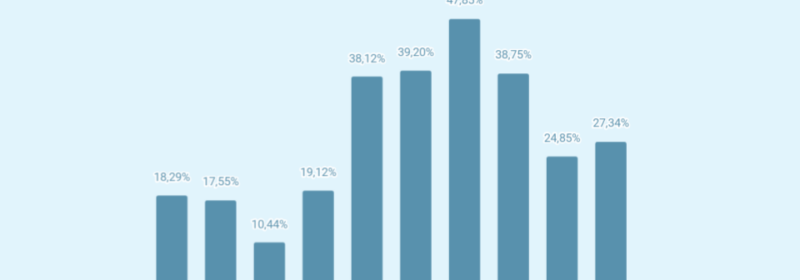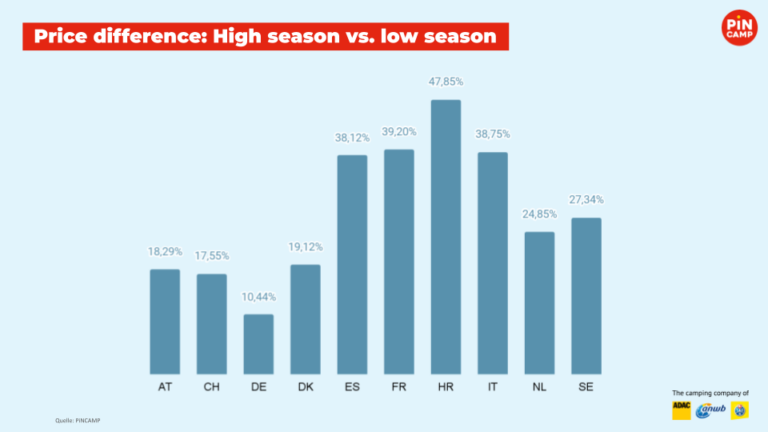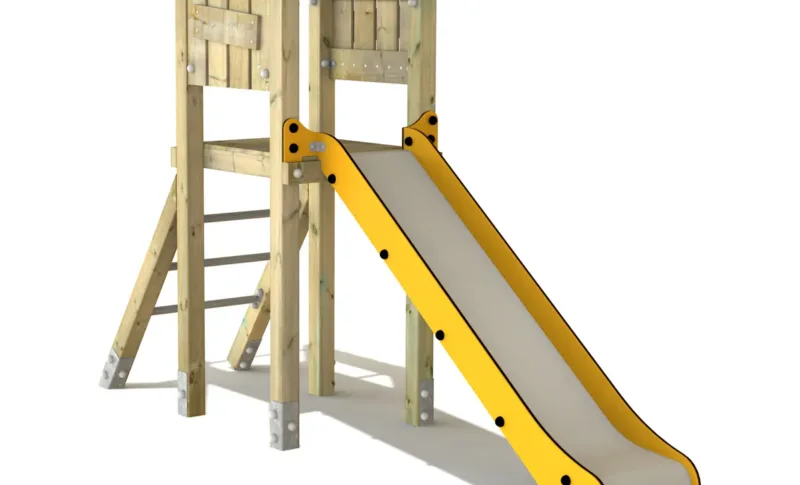
Prices in the high and low season in a European comparison
To what extent do campsites differentiate their prices in order to optimise occupancy and revenue? How high are peak season prices in order to achieve high turnover when demand is high? Are prices lower in the low season to attract guests who are not tied to school holidays?
Pricing is influenced by many factors, such as experience, target groups, holiday periods in the source markets, facilities and location of the site, staff, costs and competition, climate and weather. However, the price tables of many campsites have one thing in common: guests pay less in the early and late season than in the high season. However, our country comparison shows striking differences.
How big the price gap is between high and low season
We compared average overnight prices in the high season (July, August) with those in the low season (early and late season). The analysis covers around 4000 campsites in 10 major holiday destinations. The results are surprising: In Southern Europe, low and high season prices differ greatly from each other. In Central and Northern Europe, the difference is much smaller.
Camping countries with strong price differences
Croatian campsites show a strikingly strong differentiation. Couples pay an average of 28.50 euros per low-season overnight stay, just over half the high season price. Camping in the low season costs around 48% less here than in the high season.
Italian, Spanish and French campsite operators also use price incentives to encourage guests to book in the early or late season: Low season prices here are almost 40% lower than in the high season in each case.
The Netherlands, Denmark, Sweden, Austria and Switzerland show smaller differences between low and high season prices. The average price difference at campsites in these countries is 17% to 27%.
Where high and low season prices are close together
Germany brings up the rear in terms of price differences. High-season prices at German campsites are not only low in a European comparison, as the price analysis has shown. The difference between high season and low season is also small in Germany: guests pay on average only 10% less in the low season than in the high season.
How should campsites set their prices?
What do you think of price differences per season? Low season, shoulder season, high season I, high season II … How many seasons make sense? What role do short-term offers and price changes (‘dynamic pricing’) play? And what do guests think of differentiated prices? We look forward to your opinion!
Analysis: We analysed the overnight prices for an average pitch for two adults. Analysing the prices for a family of four yielded similar results.





